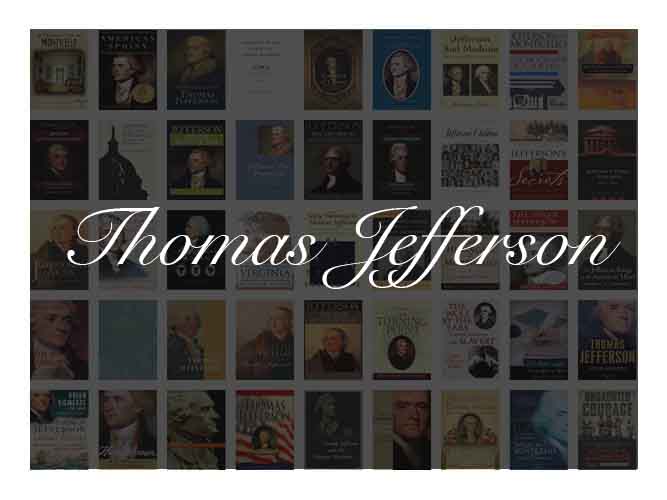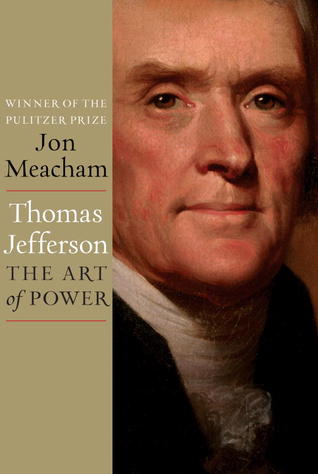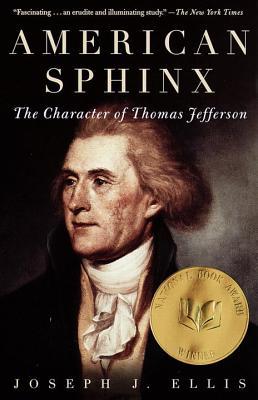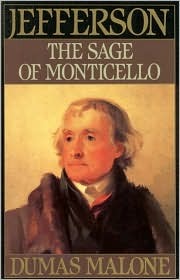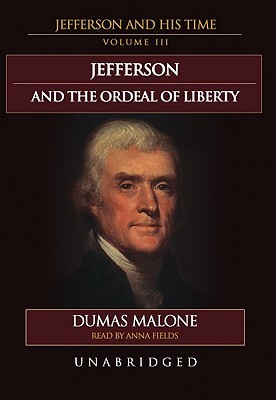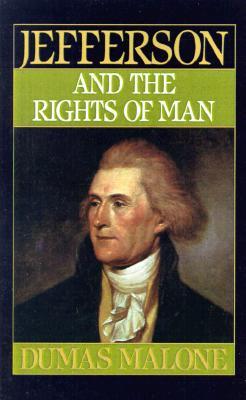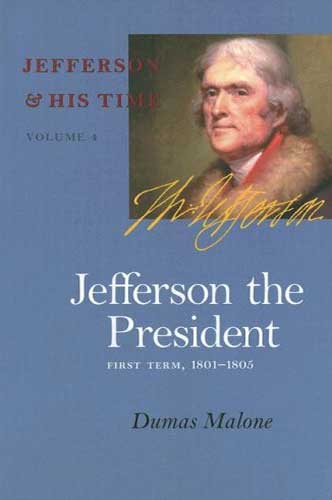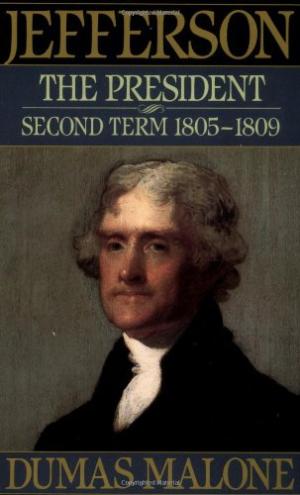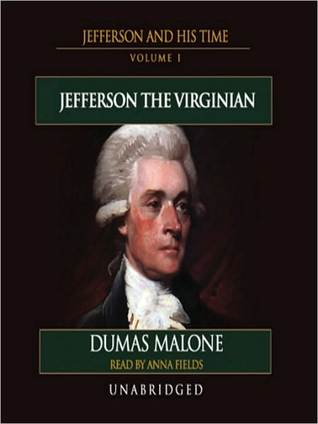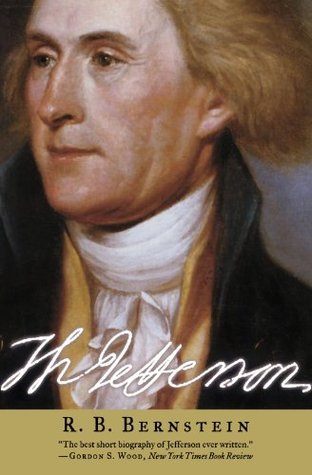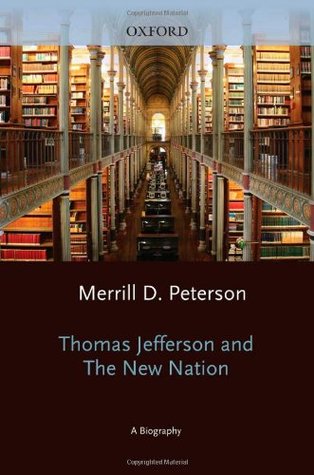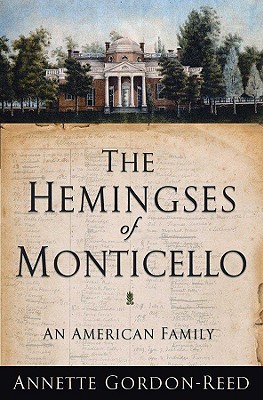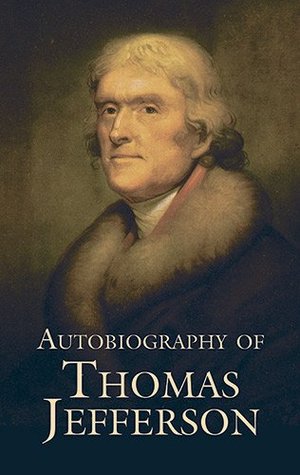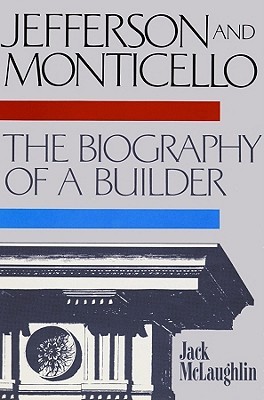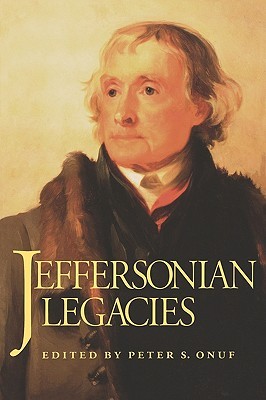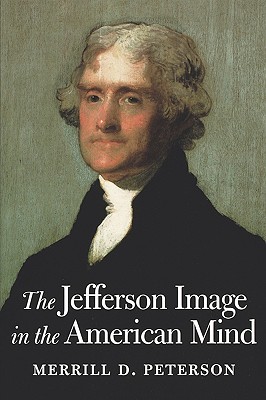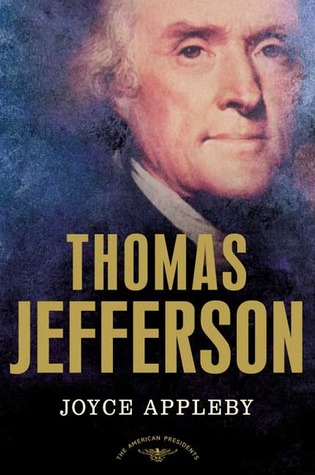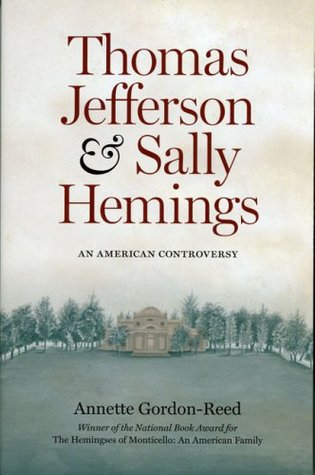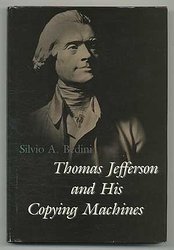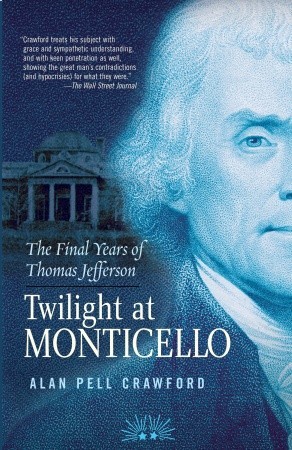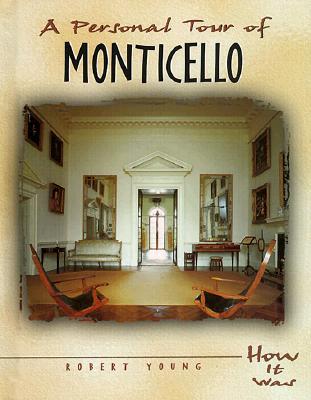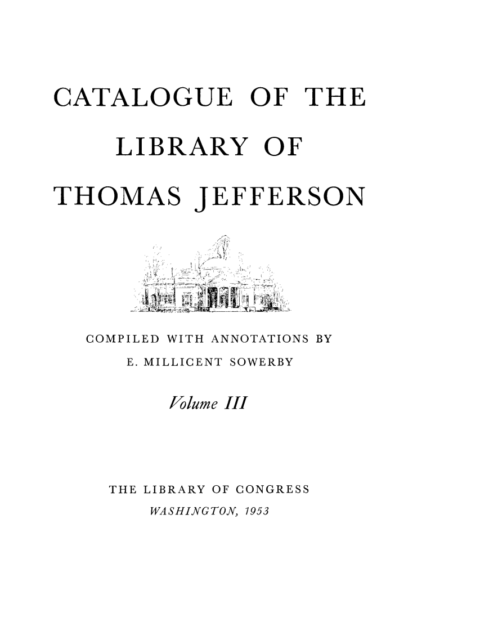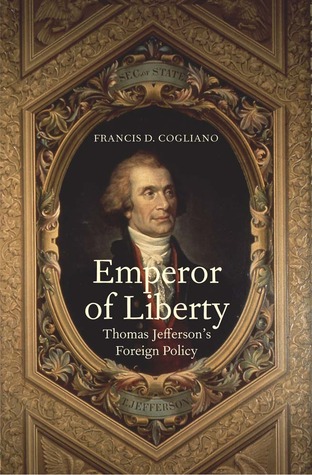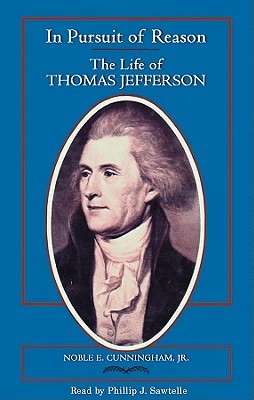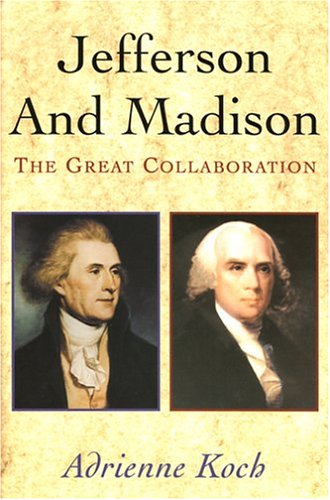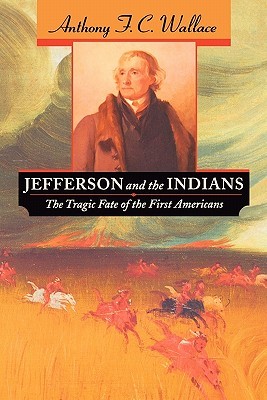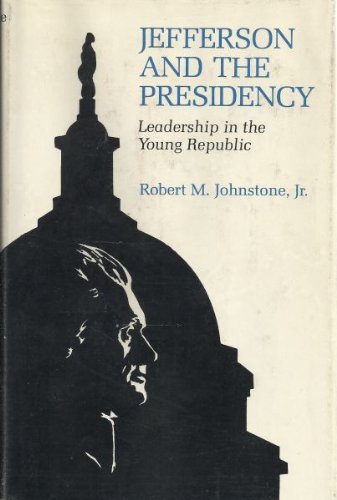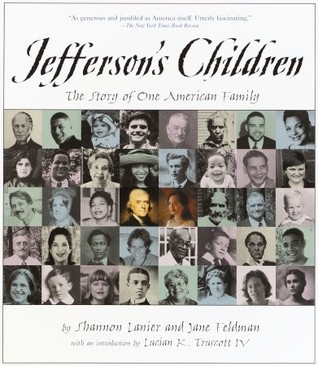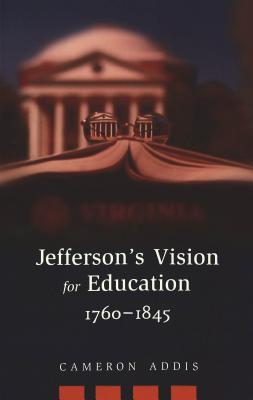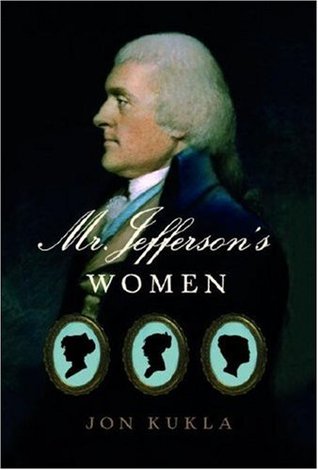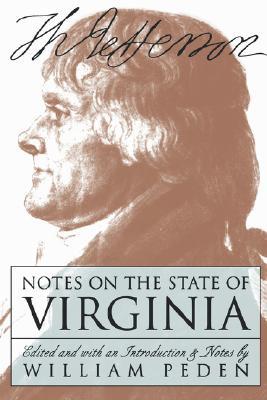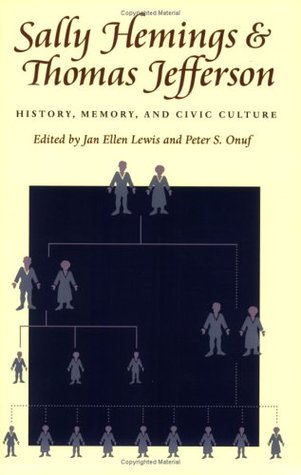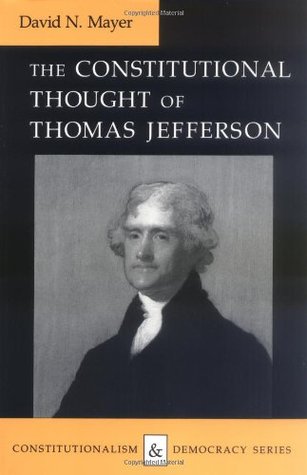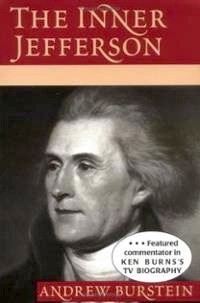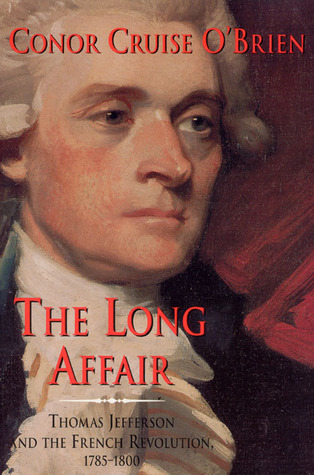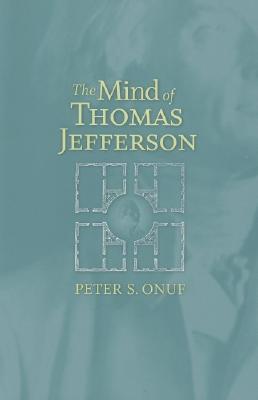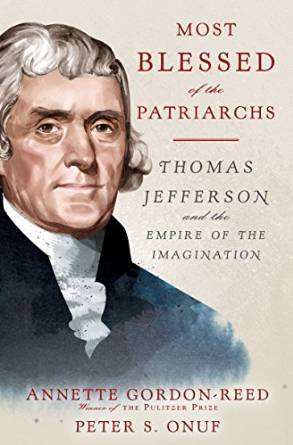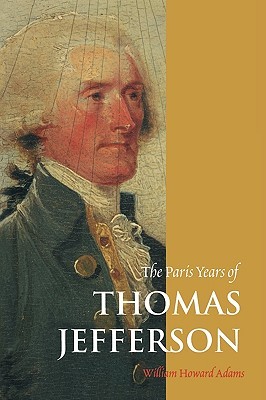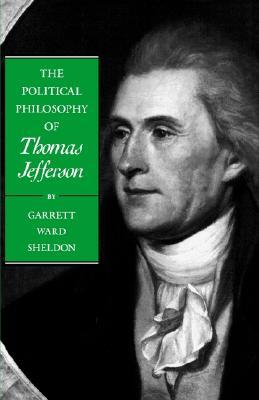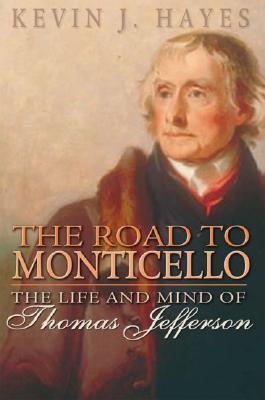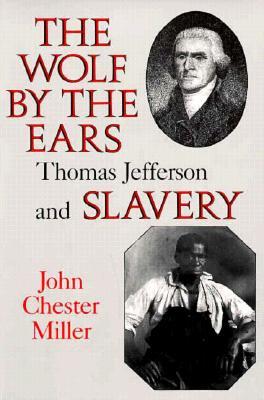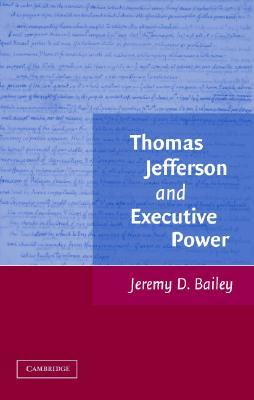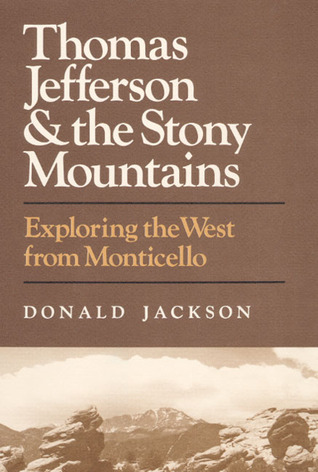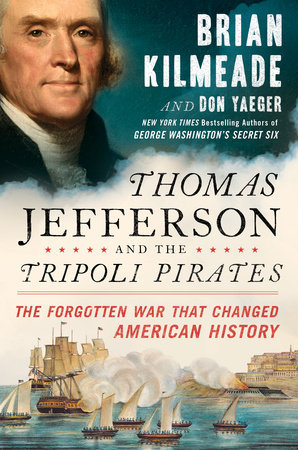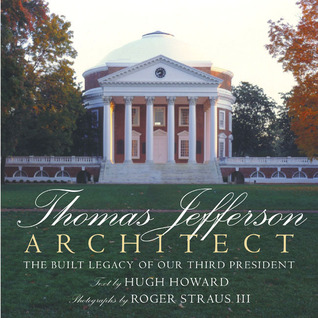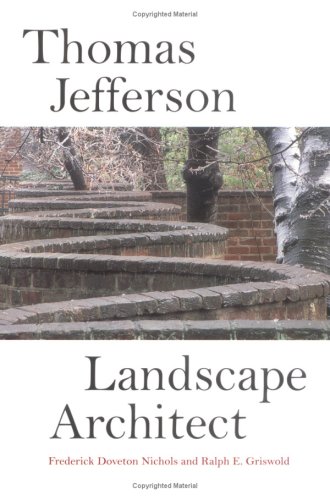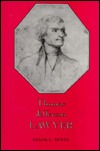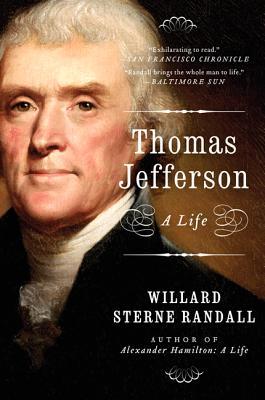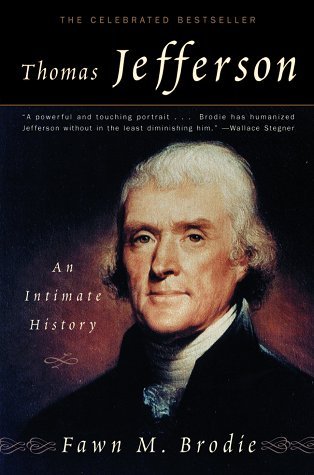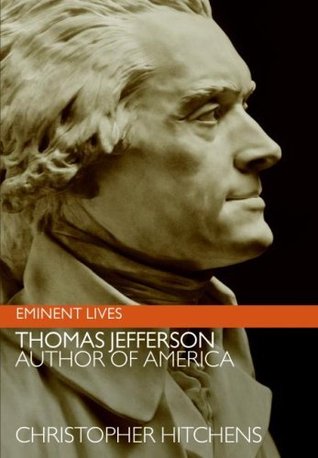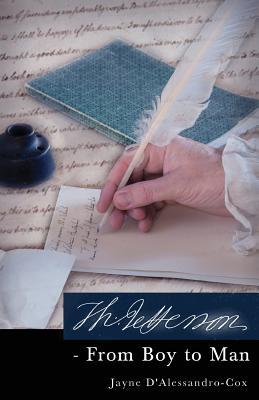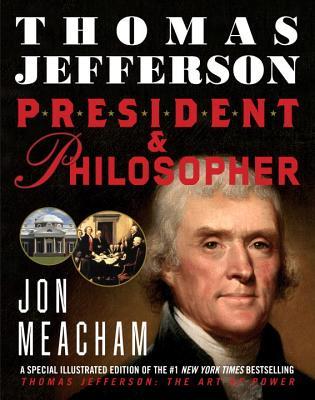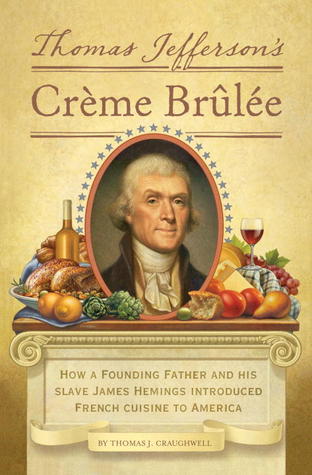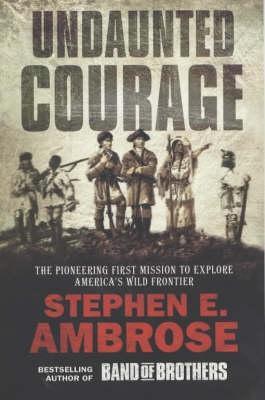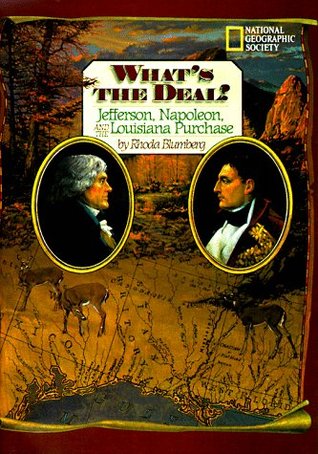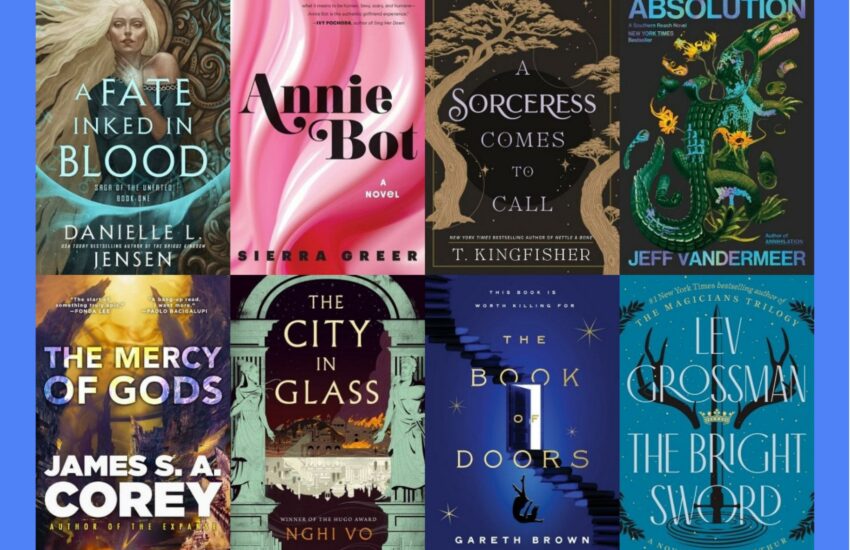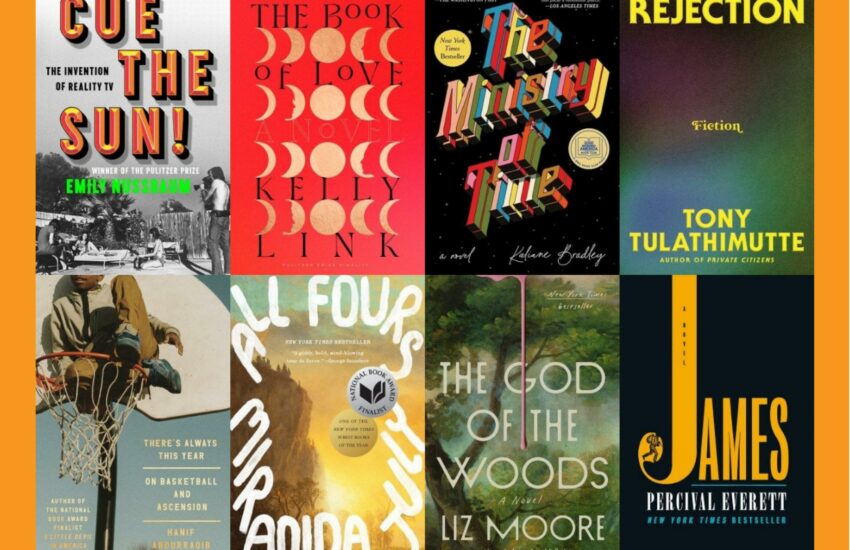The Best Books To Learn About President Thomas Jefferson
(You can view the rest of our presidential Best Book lists by going to our Best US President Books page, or for a more in-depth look at how we found and ranked the books you can visit our Best Book About Every United States President article.)
Thomas Jefferson Quick Facts |
| President Number | 3 |
| Terms In Office | 2 |
| Years | 1801-1809 |
| Political Party | Democratic-Republican |
| Vice Presidents | Aaron Burr & George Clinton |
| Home State | Virginia |
| Slaves Owned | 200 |
| Presidential Pet | Bear Cubs |
| Articles Used in Ranking | 18 |
| Number of Unique Books | 57 |
Happy Scrolling!
The Best Book About Thomas Jefferson
(Appears on 9 Lists)
Thomas Jefferson: The Art of Power by Jon Meacham
- Best Presidential Bios
- Library of Congress
- Mandi Lindner
- Mashable
- Presidential History
- Presidents USA
- Signature
- The Daily Caller
- The Washington Post
In this magnificent biography, the Pulitzer Prize–winning author of American Lion and Franklin and Winston brings vividly to life an extraordinary man and his remarkable times. Thomas Jefferson: The Art of Power gives us Jefferson the politician and president, a great and complex human being forever engaged in the wars of his era. Philosophers think; politicians maneuver. Jefferson’s genius was that he was both and could do both, often simultaneously. Such is the art of power.
#2 Book
(Appears on 7 Lists)
American Sphinx: The Character of Thomas Jefferson by Joseph J. Ellis
- Best Presidential Bios
- Library of Congress
- Presidents USA
- Shmoop
- Signature
- Smithsonian
- The Washington Post
For a man who insisted that life on the public stage was not what he had in mind, Thomas Jefferson certainly spent a great deal of time in the spotlight–and not only during his active political career. After 1809, his longed-for retirement was compromised by a steady stream of guests and tourists who made of his estate at Monticello a virtual hotel, as well as by more than one thousand letters per year, most from strangers, which he insisted on answering personally. In his twilight years Jefferson was already taking on the luster of a national icon, which was polished off by his auspicious death (on July 4, 1826); and in the subsequent seventeen decades of his celebrity–now verging, thanks to virulent revisionists and television documentaries, on notoriety–has been inflated beyond recognition of the original person.
#3-8 Books
(Appear on 3 Lists Each)
Jefferson and His Time; The Sage of Monticello (Vol 6) by Dumas Malone
- Best Presidential Bios
- Library of Congress
- Shmoop
- Smithsonian
- The Tailored Man
- The Washington Post
This final volume provides an all-encompassing account of Jefferson’s accomplishments, friendships, and family difficulties in his last seventeen years, revealing his shift from the realm of politics to his roles as family man, architect, and educational enthusiast. Describing Jefferson’s retirement from Washington, this volume recounts the events that formed Jefferson’s final years, particularly the founding of the Library of Congress and the University of Virginia, in which he played a major role.
Jefferson and the Ordeal of Liberty (Vol 3) by Dumas Malone
- Best Presidential Bios
- Library of Congress
- Shmoop
- Smithsonian
- The Tailored Man
- The Washington Post
The third volume in Dumas Malone’s distinguished study of Thomas Jefferson and his time deals with one of the most fascinating and controversial periods of Jefferson’s life. It includes the story of the final and most crucial phase of his secretaryship of state, his retirement to Monticello, his assumption of the leadership of the opposition party, and the crisis during the half-war with France when the existence of political expression was threatened and the freedom of individuals imperiled
Jefferson and the Rights of Man (Vol 2) by Dumas Malone
- Best Presidential Bios
- Library of Congress
- Shmoop
- Smithsonian
- The Tailored Man
- The Washington Post
In this second volume, Malone recounts the eventful middle years of Jefferson’s life, beginning with the European mission and Jefferson’s ministry to France and continuing through his role in the French revolution and his memorable service as secretary of state in the first cabinet of George Washington.
Jefferson the President: 1st Term (Vol 4) by Dumas Malone
- Best Presidential Bios
- Library of Congress
- Shmoop
- Smithsonian
- The Tailored Man
- The Washington Post
Examining the first four years of Jefferson’s presidency, this volume provides a fascinating account of the Louisiana Purchase, Jefferson’s continuing opposition to Hamilton’s charge for an overriding central government, and his battle with the Supreme Court.
Jefferson the President: 2nd Term (Vol 5) by Dumas Malone
- Best Presidential Bios
- Library of Congress
- Shmoop
- Smithsonian
- The Tailored Man
- The Washington Post
The third volume in a multi-volume biography details Jefferson’s career as Secretary of State and closes upon his election to the Presidency in 1801.
Jefferson the Virginian (Vol 1) by Dumas Malone
- Best Presidential Bios
- Library of Congress
- Shmoop
- Smithsonian
- The Tailored Man
- The Washington Post
The first of five volumes in a full-length biography of Jefferson.
#9-10
(Appear on 4 Lists Each)
Thomas Jefferson by R. B. Bernstein
- At Times Dull
- Best Presidential Bios
- Library of Congress
- Shmoop
In Thomas Jefferson, Bernstein offers the definitive short biography of this revered American–the first concise life in six decades. Bernstein deftly synthesizes the massive scholarship on his subject into a swift, insightful, evenhanded account. Here are all of Jefferson’s triumphs, contradictions, and failings, from his luxurious (and debt-burdened) life as a Virginia gentleman to his passionate belief in democracy, from his tortured defense of slavery to his relationship with Sally Hemings. Jefferson was indeed multifaceted–an architect, inventor, writer, diplomat, propagandist, planter, party leader–and Bernstein explores all these roles even as he illuminates Jefferson’s central place in the American enlightenment, that “revolution of ideas” that did so much to create the nation we know today. Together with the less well-remembered points in Jefferson’s thinking–the nature of the Union, his vision of who was entitled to citizenship, his dread of debt (both personal and national)–they form the heart of this lively biography.
Thomas Jefferson and the New Nation: A Biography by Merrill Peterson
- Best Presidential Bios
- Library of Congress
- Shmoop
- The Tailored Man
The definitive life of Jefferson in one volume, this biography relates Jefferson’s private life and thought to his prominent public position and reveals the rich complexity of his development. As Peterson explores the dominant themes guiding Jefferson’s career–democracy, nationality, and enlightenment–and Jefferson’s powerful role in shaping America, he simultaneously tells the story of nation coming into being.
#11
(Appears on 3 Lists)
The Hemingses of Monticello: An American Family by Annette Gordon-Reed
- Library of Congress
- Signature
- Smithsonian
This epic work―named a best book of the year by theWashington Post, Time, the Los Angeles Times, Amazon, theSan Francisco Chronicle, and a notable book by the New York Times―tells the story of the Hemingses, whose close blood ties to our third president had been systematically expunged from American history until very recently. Now, historian and legal scholar Annette Gordon-Reed traces the Hemings family from its origins in Virginia in the 1700s to the family’s dispersal after Jefferson’s death in 1826. 37 illustrations
#12-19
(Appear on 2 Lists Each)
Autobiography of Thomas Jefferson by Thomas Jefferson
- The Daily Caller
- Presidents USA
In his riveting autobiography, Jefferson details many of the events that shaped his personal philosophy and would ultimately define his political career. Allowing the reader to step into the shoes of the author of the Declaration of Independence and third president of the United States, this book is a must for anyone interested in the life and ideals of one of America’s most influential Founding Fathers.
Jefferson and Monticello: The Biography of a Builder by Jack McLaughlin
- Library of Congress
- Presidents USA
This book, a National Book Award nominee in 1988, is the life of Thomas Jefferson as seen through the prism of his love affair with Monticello. For over half a century, it was his consuming passion, his most serious amusement. With a sure command of sources and skilled intuitive understanding of Jefferson, McLaughlin crafts and uncommon portrait of builder and building alike. En route he tells us much about life in Virginia; about Monticello’s craftsmen and how they worked their materials; about slavery, class, and family; and, above all, about the multiplicity of domestic concerns that preoccupied this complex man. It is and engaging and incisive look at the eighteenth-century mind: systematic, rational, and curious, but also playful, comfort-loving, and amusing. Ultimately, it provides readers with great insight into daily life in Colonial and Federal America.
Jeffersonian Legacies by Peter Onuf
- Library of Congress
- Shmoop
On the occasion of Thomas Jefferson’s 250th birthday, a number of today’s leading historicans take a fresh look at our third president, architect of democracy for his time and still for ours. Jeffersonian Legacies reconstructs the worlds Thomas Jefferson created for himself and envisioned for his countrymen.
The Jefferson Image in the American Mind by Merrill D. Peterson
- Library of Congress
- Smithsonian
Since its publication in 1960, The Jefferson Image in the American Mind has become a classic of historical scholarship. In it Merrill D. Peterson charts Thomas Jefferson’s influence upon American thought and imagination since his death in 1826. Peterson’s focus is “not primarily with the truth or falsity of the image either as a whole or in its parts, but rather with its illuminations of the evolving culture and its shaping power. It is posterity’s configuration of Jefferson. Even more, however, it is a sensitive reflector, through several generations, of America’s troubled search of the image of itself.”
Thomas Jefferson by Joyce Appleby
- All The Presidents Books
- Library of Congress
Few presidents have embodied the American spirit as fully as Thomas Jefferson. He was the originator of so many of the founding principles of American democracy. Politically, he shuffled off the centralized authority of the Federalists, working toward a more diffuse and minimalist leadership. He introduced the bills separating church and state and mandating free public education. He departed from the strict etiquette of his European counterparts, appearing at state dinners in casual attire and dispensing with hierarchical seating arrangements. Jefferson initiated the Lewis and Clark expedition and seized on the crucial moment when Napoleon decided to sell the Louisiana Territory, thus extending the national development. In this compelling examination, distinguished historian Joyce Appleby captures all of the richness of Jefferson’s character and accomplishments.
Thomas Jefferson and Sally Hemings: An American Controversy by Annette Gordon-Reed
- Library of Congress
- Presidents USA
When Annette Gordon-Reed’s groundbreaking study was first published, rumors of Thomas Jefferson’s sexual involvement with his slave Sally Hemings had circulated for two centuries. Among all aspects of Jefferson’s renowned life, it was perhaps the most hotly contested topic. The publication of Thomas Jefferson and Sally Hemings intensified this debate by identifying glaring inconsistencies in many noted scholars’ evaluations of the existing evidence. In this study, Gordon-Reed assembles a fascinating and convincing argument: not that the alleged thirty-eight-year liaison necessarily took place but rather that the evidence for its taking place has been denied a fair hearing.
Thomas Jefferson: Statesman of Science by Silvio A. Bedini
- Library of Congress
- Presidents USA
Inventor, botanist, geographer, archaeologist, architect, tireless recorder of the natural world–Bedini gives us the Jefferson that not only forged the politics of America, but made scientific progress synonymous with the spirit of America. 24 photographs.
Twilight at Monticello: The Final Years of Thomas Jefferson by Alan Pell Crawford
- Best Presidential Bios
- Smithsonian
Much has been written about Thomas Jefferson, with good reason: His life was a great American drama–one of the greatest–played out in compelling acts. He was the architect of our democracy, a visionary chief executive who expanded this nation’s physical boundaries to unimagined lengths. But Twilight at Monticello is something entirely new: an unprecedented and engrossing personal look at the intimate Jefferson in his final years that will change the way readers think about this true American icon. It was during these years–from his return to Monticello in 1809 after two terms as president until his death in 1826–that Jefferson’s idealism would be most severely, and heartbreakingly, tested.
#20-57
(Appear on 1 List Each)
A Personal Tour of Monticello by Robert Young
- America’s Story
Presents a tour of Thomas Jefferson’s home in Virginia through the eyes of a slave boy, a cook, a visitor, Jefferson himself, and his grand-daughter.
Catalogue of the Library of Thomas Jefferson by Millicent E. Sowerby
- Library of Congress
Emperor of Liberty: Thomas Jefferson’s Foreign Policy by Francis D. Cogliano
- Library of Congress
This book, the first in decades to closely examine Thomas Jefferson’s foreign policy, offers a compelling reinterpretation of his attitudes and accomplishments as a statesman during America’s early nationhood. Beginning with Jefferson’s disastrous stint as wartime governor of Virginia during the American Revolution, and proceeding to his later experiences as a diplomat in France, Secretary of State, and U.S. Vice President, historian Francis Cogliano considers how these varied assignments shaped Jefferson’s thinking about international relations. The author then addresses Jefferson’s two terms as President—his goals, the means he employed to achieve them, and his final record as a statesman.
In Pursuit of Reason: The Life of Thomas Jefferson by Noble E. Cunningham
- Library of Congress
The authoritative single-volume biography of Thomas Jefferson, perhaps the most significant figure in American history. He was a complex and compelling man: a fervent advocate of democracy who enjoyed the life of a southern aristocrat and owned slaves, a revolutionary who became president, a believer in states’ rights who did much to further the power of the federal government. Drawing on the recent explosion of Jeffersonian scholarship and fresh readings of original sources, IN PURSUIT OF REASON is a monument to Jefferson that will endure for generations.
Jefferson and Madison: The Great Collaboration by Adrienne Koch
- Shmoop
Many of the earliest books, particularly those dating back to the 1900s and before, are now extremely scarce and increasingly expensive. We are republishing these classic works in affordable, high quality, modern editions, using the original text and artwork.
Jefferson and the Indians: The Tragic Fate of the First Americans by Anthony F. Wallace
- Library of Congress
In Thomas Jefferson’s time, white Americans were bedeviled by a moral dilemma unyielding to reason and sentiment: what to do about the presence of black slaves and free Indians. That Jefferson himself was caught between his own soaring rhetoric and private behavior toward blacks has long been known. But the tortured duality of his attitude toward Indians is only now being unearthed.
Jefferson and the Presidency: Leadership in the Young Republic by Robert M. Johnstone
- Library of Congress
Jefferson’s Children: The Story of One American Family by Shannon Lanier
- Presidents USA
Told in the style of a family photo album—with a combination of photographs and interviews—Jefferson’s Children is the riveting story of Thomas Jefferson and Sally Hemming’s sixth great-grandson, Shannon Lanier’s, travels across the country to meet his relatives from both sides of the family. The profiles contained chart the multiple perspectives of Jefferson’s and Hemming’s descendants, from those who embrace their heritage to those who want nothing to do with Jefferson’s legacy. A fascinating picture soon emerges, one that begins with a pairing of two individuals with vastly disparate levels of power—on the one side, the third president of the United States and the author of the Declaration of Independence; on the other, the woman who was his property—and that ultimately represents America’s complicated history with issues of diversity and race and the unusual ways in which we define family.
Jefferson’s Secrets: Death and Desire at Monticello by Andrew Burstein
- Library of Congress
When Thomas Jefferson died on July 4, 1826, he left behind a series of mysteries that have captured the imaginations of historical investigators for generations. In Jefferson’s Secrets, Andrew Burstein draws on sources previous biographers have glossed over or missed entirely. Beginning with Jefferson’s last days, Burstein shows how Jefferson confronted his own mortality. Burstein also tackles the crucial questions history has yet to answer: Did Jefferson love Sally Hemings? What were his attitudes towards women? Did he believe in God? How did he wish to be remembered? The result is a profound and nuanced portrait of the most complex of the Founding Fathers.
Jefferson’s Vision for Education, 1760-1845 by Cameron Addis
- Library of Congress
Thomas Jefferson’s ideas on education evolved over sixty years – from his adolescent years at The College of William and Mary, through the Revolution and election of 1800, to his death in 1826. In 1776, he saw public education as the cornerstone of Virginia’s revolution and hoped it would help destroy aristocratic and denominational privilege, create opportunities based on merit, foster humanism and encourage the political awareness necessary for a republican society. Though limited to white males, public education was a progressive idea for its time. All his bills failed. Even though Jefferson’s own machinations stymied bills for a statewide system in the 1810s, the «hobby of his old age», the University of Virginia, opened in 1825. Jefferson’s Vision for Education, 1760-1845 examines why Jefferson subverted the democratic spirit of his early plans, and how well other political and religious dimensions of his vision materialized at the University of Virginia during its first twenty years.
Mr. Jefferson’s Women by Jon Kukla
- Presidents USA
Notes on the State of Virginia by Thomas Jefferson
- Politico
Jefferson’s chronicle of the natural, social, and political history of Virginia is at once a scientific discourse, an attempt to define America, and a brilliant examination of the idea of freedom.
Sally Hemings and Thomas Jefferson: History, Memory, and Civic Culture by Jan E. Lewis
- Library of Congress
The Constitutional Thought of Thomas Jefferson by David N. Mayer
- Library of Congress
In this comprehensive account of Thomas Jefferson’s constitutional thought, David N. Mayer offers a fresh perspective on Jefferson’s philosophy of government. Eschewing the “liberalism versus civic republicanism” debate that has so dominated early American scholarship in recent years, Mayer examines Jefferson’s thought in Jefferson’s own terms- as “whig,” “federal,” and “republican.” In the interrelationships and tensions among these three essential aspects of Jefferson’s theory, Mayer explaines Jefferson’s response to the particular constitutional issues and problems of his time. In contrast to other studies that view Jefferson as a champion of democracy, Mayer’s book emphasizes Jefferson’s commitment to liberty and his distrust of government.
The Inner Jefferson: Portrait of a Grieving Optimist by Andrew Burstein
- Library of Congress
Thomas Jefferson’s personal life has always been a puzzle to biographers. Even his contemporaries found him difficult to know. In Jefferson’s correspondence, however, Andrew Burstein has found a key to the inner man. This penetrating and thoughtful portait confronts widespread misunderstandings about Jefferson’s romantic life and provides insight into the contradictions that still surround our third president.
The Long Affair: Thomas Jefferson and the French Revolution, 1785-1800 by Conor Cruise O’Brien
- Presidents USA
As controversial and explosive as it is elegant and learned, The Long Affair is Conor Cruise O’Brien’s examination of Thomas Jefferson, as man and icon, through the critical lens of the French Revolution. O’Brien offers a provocative analysis of the supreme symbol of American history and political culture and challenges the traditional perceptions of both Jeffersonian history and the Jeffersonian legacy.
The Mind of Thomas Jefferson by Peter S. Onuf
- Library of Congress
In The Mind of Thomas Jefferson, one of the foremost historians of Jefferson and his time, Peter S. Onuf, offers a collection of essays that seeks to historicize one of our nation’s founding fathers. Challenging current attempts to appropriate Jefferson to serve all manner of contemporary political agendas, Onuf argues that historians must look at Jefferson’s language and life within the context of his own place and time. In this effort to restore Jefferson to his own world, Onuf reconnects that world to ours, providing a fresh look at the distinction between private and public aspects of his character that Jefferson himself took such pains to cultivate. Breaking through Jefferson’s alleged opacity as a person by collapsing the contemporary interpretive frameworks often used to diagnose his psychological and moral states, Onuf raises new questions about what was on Jefferson’s mind as he looked toward an uncertain future. Particularly striking is his argument that Jefferson’s character as a moralist is nowhere more evident, ironically, than in his engagement with the institution of slavery. At once reinvigorating the tension between past and present and offering a new way to view our connection to one of our nation’s founders, The Mind of Thomas Jefferson helps redefine both Jefferson and his time and American nationhood.
The Most Blessed of the Patriarchs: Thomas Jefferson and the Empire of the Imagination by Annette Gordon-Reed and Peter S. Onuf
- The Daily Caller
Thomas Jefferson is often portrayed as a hopelessly enigmatic figure―a riddle―a man so riven with contradictions that he is almost impossible to know. Lauded as the most articulate voice of American freedom and equality, even as he held people―including his own family―in bondage, Jefferson is variably described as a hypocrite, an atheist, or a simple-minded proponent of limited government who expected all Americans to be farmers forever.
The Paris Years of Thomas Jefferson by William Howard Adams
- Library of Congress
In 1784 Thomas Jefferson moved to the city of Paris, where he spent the next five years as minister for the new United States of America. These were formative years for France, for the United States, and for Jefferson’s cultural and intellectual development. This book recreates the atmosphere and personalities of pre-revolutionary Paris, and reveals the impact they had on one of America’s first transatlantic citizens. The text discusses how the provincial Virginian became a cosmopolitan connoisseur in the intellectual, political, scientific and artistic circles of the city. It describes Jefferson’s relationships with such people as Lafayette, Condorcet, Lavoisier, Baron Grimm, La Rochefoucauld, John and Abigail Adams, Gouverneur Morris, and J.L. David, as well as his involvement with the English painter, Maria Cosway. His alleged affair with his slave Sally Hemings is also examined in the context of all available evidence. The principal focus of the book is on Jefferson’s role as the pre-eminent envoy in Europe after the departure of Franklin, his participation in the cultural and political life of the city, and his private intrigues to help his friends bring the Bourbon monarchy to heel. Finally, the author of the Declaration of Independence is placed in the middle of his second revolution and the book chronicles the events leading up to the upheaval of 1788-1789.
The Political Philosophy of Thomas Jefferson by Garrett Ward Sheldon
- Library of Congress
Offers a concise introduction to Jefferson’s political philosophy, and aims to make a contribution to a prevailing historiographic controversy: was Thomas Jefferson a Lockean liberal or a classical republican? Sheldon claims that his thought followed a rich variety of theoretical traditions.
The Road to Monticello: The Life and Mind of Thomas Jefferson by Kevin J. Hayes
- Library of Congress
Thomas Jefferson was an avid book-collector, a voracious reader, and a gifted writer, a man who prided himself on his knowledge of classical and modern languages and whose marginal annotations include quotations from Euripides, Herodotus, and Milton. And yet there has never been a literary life of our most literary president.
The Wolf by the Ears: Thomas Jefferson and Slavery by John Chester Miller
- Library of Congress
This analysis of Jefferson’s antislavery views and the actions to which they gave rise, the subject matter of The Wolf by the Ears,is necessarily episodic; while chronology has been generally observed, it was not possible to weld this disparate material into the form of a biographical narrative.
Thomas Jefferson and Executive Power by Jeremy D. Bailey
- Library of Congress
This book examines Thomas Jefferson’s attempt to combine respect for a fundamental constitution with the fact that no set of laws can foresee every event. His solution to this problem offers a democratic, yet strong, alternative to the more common, Hamiltonian solution. Jefferson scholars have long written of ‘two Jeffersons,’ one before he became president and one after he became president. The first was opposed to a strong executive, while the second embraced one out of necessity. This book challenges this account. It presents Jefferson’s understanding of executive power, which, though it developed over time, pointed to an executive that was both democratic and powerful.
Thomas Jefferson and the Stony Mountains: Exploring the West from Monticello by Donald Jackson
- Library of Congress
Although he did not travel farther inland than the slopes of the Appalachians, Thomas Jefferson must take his place alongside Zebulon Pike, Kit Carson, Jim Bridger, and Lewis and Clark–the men who blazed the great western trails. Donald Jackson cogently recounts Jefferson’s fundamental role in promoting and shaping the exploration, settlement, and development of the Trans-Mississippi West.
Thomas Jefferson and the Tripoli Pirates: The Forgotten War That Changed American History by Brian Kilmeade
- The Daily Caller
This is the little-known story of how a newly independent nation was challenged by four Muslim powers and what happened when America’s third president decided to stand up to intimidation.
Thomas Jefferson, Architect: The Built Legacy of Our Third President by Hugh Howard
- Library of Congress
Now available in a newly reduced trim size and at a lower price, this is the first volume to include all the existing work by Thomas Jefferson, the third president of the United States and father of American architecture. Along with his numerous political achievements, Thomas Jefferson was also the first great architect of the United States. Monticello, Jefferson’s own home, is showcased here, as is the University of Virginia, which he founded and conceived the architecture for, and which many consider to be the greatest campus of any American university and certainly one of this country’s greatest public spaces. This volume also includes the balance of Jefferson’s work as an architect: the Virginia State Capitol and more than a dozen private homes still standing today. Illustrated with splendid color photography, this is the first volume to combine all the extant work of Jefferson.
Thomas Jefferson, Landscape Architect by Frederick Doveton, and Ralph E. Nichols
- Library of Congress
Collaboration with the greatest botanists of his time, an instinctive humanitarianism, and a natural ingenuity in landscape design combined to make Thomas Jefferson a pioneer in American landscape architecture. Frederick D. Nichols and Ralph E. Griswold, in this close study of Jefferson’s many notes, letters, and sketches, present a clear and detailed interpretation of his extraordinary accomplishments in the field.
Thomas Jefferson, Lawyer by Frank L. Dewey
- Library of Congress
At twenty-three, Thomas Jefferson became the youngest practitioner before Virginia’s highest court. This is the first book to explore in depth the eight years that Jefferson spent as a trial lawyer. Frank L. Dewey considers how Jefferson prepared for his career, how he acquired a clientele, what kind of cases he handled, how he fared financially, and why he retired from the law.
Thomas Jefferson: A Life by Willard Sterne Randall
- Presidents USA
Combining firsthand scholarship and material drawn from the Jefferson Papers, Willard Sterne Randall calls on his skills as an investigative journalist to challenge long-held assumptions about the reasoning, motives, and works of this sage, philosopher, politician, and romantic. Exploring both Jefferson’s interior and public struggles, Randall sheds important light on Jefferson’s thoughts on slavery and his relationship with the slave Sally Hemmings, as well as Revolutionary and diplomatic intrigues.
Thomas Jefferson: An Intimate History by Fawn M. Brodie
- Presidents USA
With a novelist’s skill and a scholar’s meticulous detail, Fawn M. Brodie portrays Thomas Jefferson as he wrestled with the great issues of his time: revolution, religion, power, race, and love―ambivalences that exerted a subtle but powerful influence on his political ideas and his presidency. Far advanced for its time, Brodie’s biography was the first to set forth a convincing case that Thomas Jefferson was the father of children by his slave Sally Hemings. In a new introduction, Annette Gordon-Reed, the Pulitzer Prize–winning author of The Hemingses of Monticello, explores the impact of Brodie’s groundbreaking book and explains why it is still such a powerful account of one of our greatest and most elusive presidents. 16 pages of illustrations
Thomas Jefferson: Author of America by Christopher Hitchens
- Presidents USA
In this unique biography of Thomas Jefferson, leading journalist and social critic Christopher Hitchens offers a startlingly new and provocative interpretation of our Founding Father—a man conflicted by power who wrote the Declaration of Independence and acted as ambassador to France yet yearned for a quieter career in the Virginia legislature. A masterly writer, Jefferson was an awkward public speaker. A professed proponent of emancipation, he elided the issue of slavery from the Declaration of Independence and continued to own human property. A reluctant candidate, he left an indelible presidential legacy. With intelligence, insight, eloquence, and wit, Hitchens gives us an artful portrait of a complex, formative figure and his turbulent era.
Thomas Jefferson: Father of Liberty by Jeri Ferris
- America’s Story
A biography that describes the love of books and learning as well as the personal life and political career of the third president of the United States.
Thomas Jefferson: From Boy to Man by Jayne Alessandro-CoxR
- Presidential History
Thomas Jefferson: President and Philosopher by Jon Meacham
- Presidents USA
In this special illustrated edition of the #1 New York Timesbestselling Thomas Jefferson: The Art of Power by Pulitzer Prize–winning author Jon Meacham, young readers will learn about the life and political philosophy of one of our Founding Fathers.
Thomas Jefferson’s Crème Brulee by Thomas Craughwell
- Signature
This culinary biography recounts the 1784 deal that Thomas Jefferson struck with his slaves, James Hemings. The founding father was traveling to Paris and wanted to bring James along “for a particular purpose”— to master the art of French cooking. In exchange for James’s cooperation, Jefferson would grant his freedom.
Turning Point: Jefferson’s Battle for the Presidency by Frank van der Linden
Lists It Appears On:
- Presidents USA
A pivotal turning point in the affairs of an infant republic, Jefferson’s election ended the Federalist era of aristocratic rule and opened the doors to the age of modern democracy.
Undaunted Courage: Meriwether Lewis, Thomas Jefferson, and the Opening of the American West by Stephen Ambrose
- Presidents USA
From the bestselling author of Band of Brothers and D-Day, the definitive book on Lewis and Clark’s exploration of the Louisiana Purchase, the most momentous expedition in American history and one of the great adventure stories of all time.
What’s the Deal? Jefferson, Napoleon, and the Louisiana Purchase by Rhoda Blumberg
- America’s Story
Discusses the Louisiana Purchase of 1803 and the political maneuverings of Napoleon and Jefferson that made it possible.
The Best Thomas Jefferson Book Lists Consulted
